There is a fairy tale that tells of two quarreling gods who settle a dispute between them by making works of art out of haystacks. Jenju community
(
Jenju (which means "pearl") in Tungshan Township (
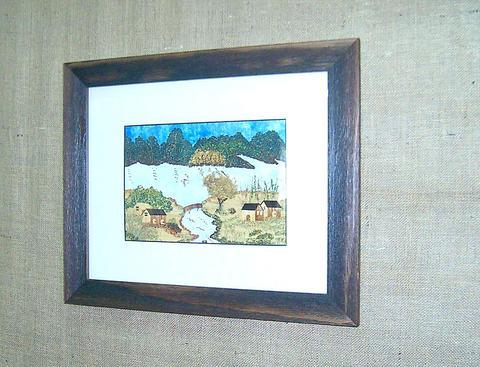
PHOTO COURTESY OF JENJU COMMUNITY DEVELOPMENT ASSOCIATION
The Jenju story begins in the mists of time with disputes arising from competition between two rival local temples, the Chinshing Divine Palace (
"My idea was fairly simple at the time," said Huang, who is in his 30s. "Since the adherents of these two temples used to boycott each other's religious activities, I figured that if I put their worshiping gods side by side, the followers would have to come together and participate in the same event."
This artistic display seemed to defuse the ancient antagonism overnight and now these two painted haystack gods have become landmarks for Jenju. The hay art festival is held from July to September every year and features such crafts as hay painting, hay-pulp masks, hay dolls, hay knitting and more.

"You see, we specialize in hay art from the standpoint of seeking community harmony. Huang's bold move has given his fellow residents a great opportunity to explore something creative in art. This goes far beyond what any farmer could have imagined in the past," said Lee Hou-zine (
One example of how people have benefited practically is the pulp-mask business, where straw is ground into powder and made into masks with a machine. This small enterprise now brings in an income of NT$2 million a year through sales to tourists. Another popular craft is cutting the hay into small sections, which are dyed and then glued onto wood panels to create paintings.
The Jenju community was created in February 1994 in an area that was formally inhabited by one of the 36 Pingpu Kuvalan tribes (
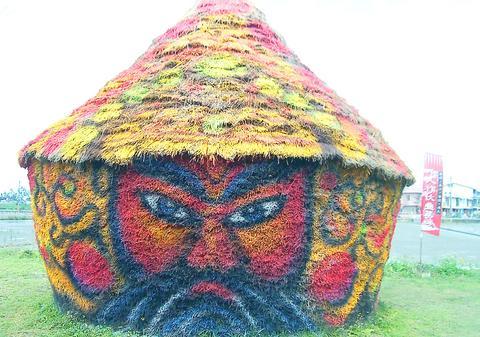
The 2.5km2 community relies primarily on rice and vegetable cultivation and is helped in this respect by the 24km-long Tungshan River which flows through it. A census accounted for 250 people in the area in 1810 and there are now 1,851, with a population increase of 10 percent in recent years, due perhaps to the community's success in providing jobs for its residents.
The river is used for many large-scale international water sport events and one of the most popular cultural activities in Taiwan, the International Children's Folklore and Folkgame Festival (
The Ilan County Government plans to launch a water bus project a few years from now by using solar-powered ferryboats to link Jenju Community, Chingshuei Park and other popular visitor points along the river. Its overarching aim is to set up a national waterfront recreation area to boost local tourism even further.

The Jenju community, however, is just one example of the many independent villages which have adapted to changes in the farming ecomomy. Other examples include Ilan's White Rice Community (
Under the 10-year-old Integrated Community Development Project (
If you do have the chance to visit Jenju, do not miss a pumpkin meal or baked pumpkin pie. Local resident Lee Chi-sen (
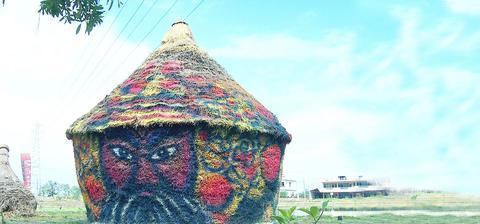
Lee, who is in his 60s, is an art-crazy farmer as well. He enjoys making carvings, in the shape of a Chinese dragon or other animals, on the skin of his pumpkins that hang from canopies of leaves in the garden.
There are many untold stories in the country's village communities and the story of one man bringing peace to a village through hay art is just one of them.
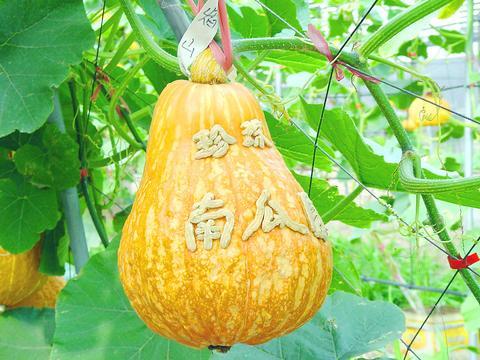
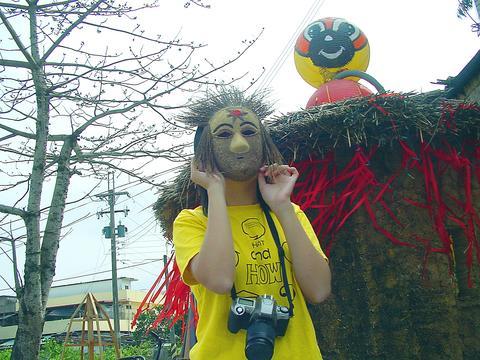
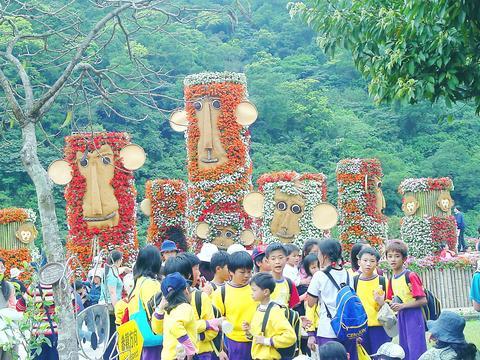
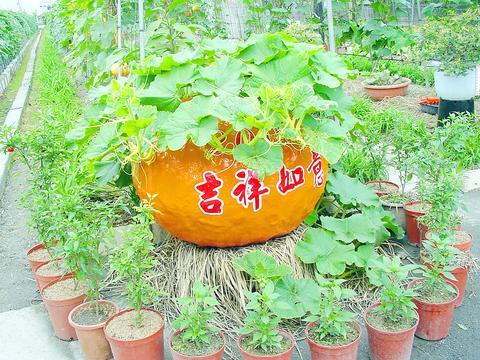

In the March 9 edition of the Taipei Times a piece by Ninon Godefroy ran with the headine “The quiet, gentle rhythm of Taiwan.” It started with the line “Taiwan is a small, humble place. There is no Eiffel Tower, no pyramids — no singular attraction that draws the world’s attention.” I laughed out loud at that. This was out of no disrespect for the author or the piece, which made some interesting analogies and good points about how both Din Tai Fung’s and Taiwan Semiconductor Manufacturing Co’s (TSMC, 台積電) meticulous attention to detail and quality are not quite up to

April 21 to April 27 Hsieh Er’s (謝娥) political fortunes were rising fast after she got out of jail and joined the Chinese Nationalist Party (KMT) in December 1945. Not only did she hold key positions in various committees, she was elected the only woman on the Taipei City Council and headed to Nanjing in 1946 as the sole Taiwanese female representative to the National Constituent Assembly. With the support of first lady Soong May-ling (宋美齡), she started the Taipei Women’s Association and Taiwan Provincial Women’s Association, where she

Chinese Nationalist Party (KMT) Chairman Eric Chu (朱立倫) hatched a bold plan to charge forward and seize the initiative when he held a protest in front of the Taipei City Prosecutors’ Office. Though risky, because illegal, its success would help tackle at least six problems facing both himself and the KMT. What he did not see coming was Taipei Mayor Chiang Wan-an (將萬安) tripping him up out of the gate. In spite of Chu being the most consequential and successful KMT chairman since the early 2010s — arguably saving the party from financial ruin and restoring its electoral viability —

It is one of the more remarkable facts of Taiwan history that it was never occupied or claimed by any of the numerous kingdoms of southern China — Han or otherwise — that lay just across the water from it. None of their brilliant ministers ever discovered that Taiwan was a “core interest” of the state whose annexation was “inevitable.” As Paul Kua notes in an excellent monograph laying out how the Portuguese gave Taiwan the name “Formosa,” the first Europeans to express an interest in occupying Taiwan were the Spanish. Tonio Andrade in his seminal work, How Taiwan Became Chinese,